South African magistrates protest for better remuneration and working conditions
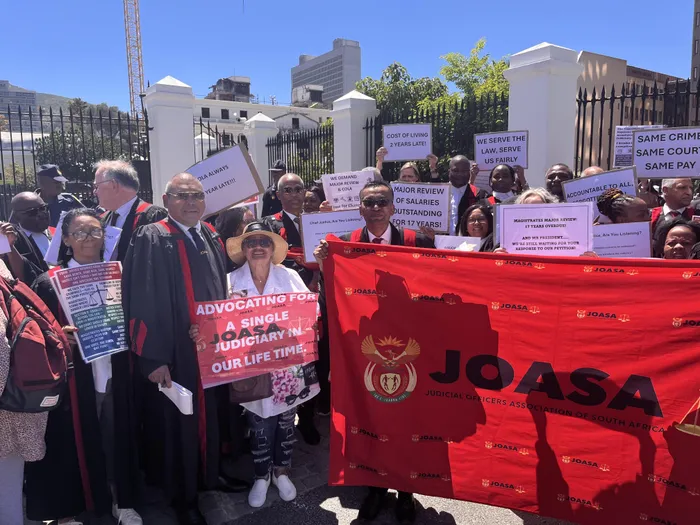
Magistrates of South Africa delivered a memorandum to parliament calling on improved working conditions and remuneration.
Image: Fouzia van der Fort
Magistrates of South Africa protested outside parliament, in Cape Town, on Wednesday, October 29, demanding better remuneration and benefits.
Judicial Officers Association of South Africa (JOSAS) president Neelan Karikan said these were their "bread and butter issues".
He handed a memorandum to Charles Ford, regional director for National Government Services, alongside leaders of the United Sovereign Cape Kingdom Sovereign People's Court.
Mr Ford said that he would ensure it gets to President Cyril Ramaphosa's desk, but warned that it could take up to six weeks for a response because of administrative processes.
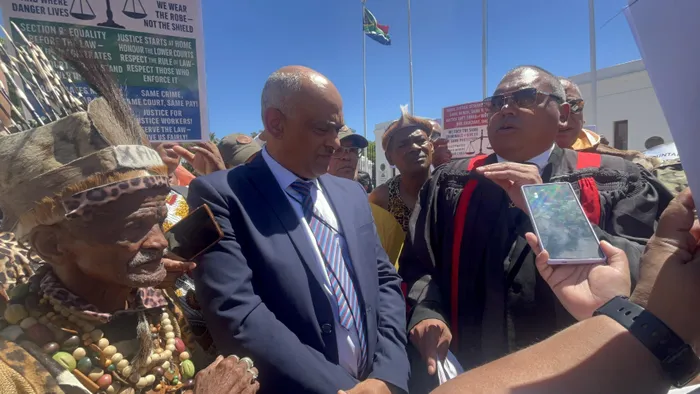
Pictured from left are Christoffel van Wyngaard, from the |Xam Bushmen Kraal of Wemmershoek, regional Director at national government services Charles Ford and Judicial Officers Association of South Africa (JOSAS) president Neelan Karikan.
Image: Fouzia van der Fort
Mr Karikan said that a "major review" of their conditions has been outstanding for 17 years.
The memorandum from JOSAS and regional court colleagues states: "We will not be silenced or intimidated. We will continue to exercise our constitutional rights and demand better working conditions and compensation."
The group has engaged with traditional Khoi and San leadership and has presented the memorandum to the Independent Commission for Remuneration (IRC) at the presidency.
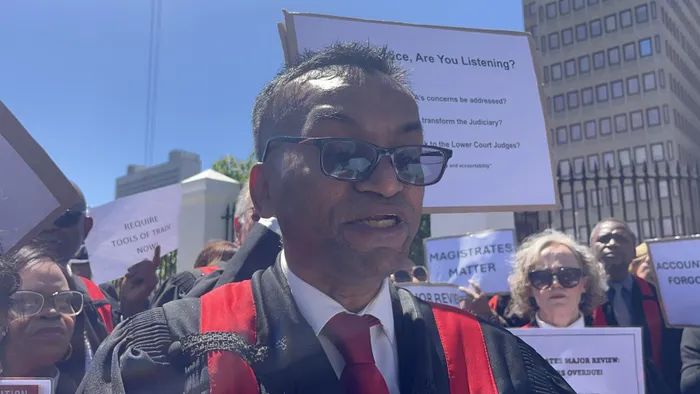
Judicial Officer's Association of South Africa (Joasa) secretary, Rohan Roopnarian reads out the memorandum
Image: Fouzia van der Fort
The same memorandum was previously submitted to the Constitutional Court in December and has been shared with the Public Protector and the South African Human Rights Commission.
South Africa's justice system, a legacy of apartheid, suffers from a fragmented judiciary.
According to Mr Karikan, reforms to merge superior courts and magistracy under the Chief Justice were for unity, in accordance with the constitution, and have been delayed for decades, worsening resource and administrative issues.
Mr Karikan said that "lower court judges" were not protected - they do not have personal security, and that the security at court was for the building and people entering and exiting it.
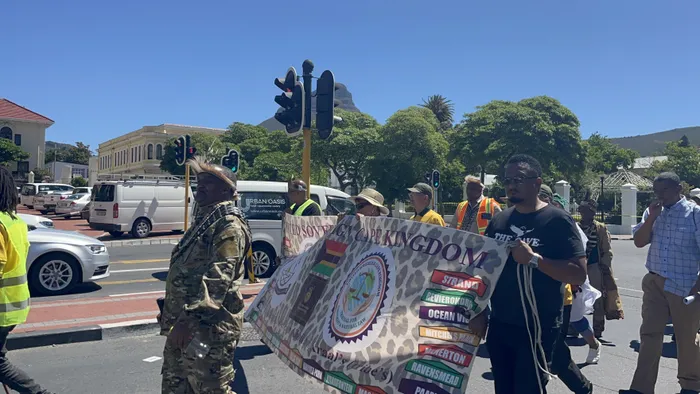
King Cornelius Botha, from United Sovereign Cape Kingdom (USCK), and members walk away from parliament after delivering a memorandum.
Image: Fouzia van der Fort
Mr Karikan listed cost-of-living adjustments.
"Every year generally, people get an increase. Magistrates don't get an increase," he said.
He said that magistrates contribute to the Government Employees Pension Fund (GEPF) but do not benefit from it.
Judges receive "salary for life" without contributing a cent to the GEPF.
He explained that prosecutors who were junior to magistrates were earning more than they.
The Ministry of Justice, in a statement, acknowledged the need for a single judiciary.
It said that achieving a single judiciary was a government priority, with significant progress made towards the Judiciary's institutional independence.
"This involves transferring lower court administration and the magistrates' commission to the office of the Chief Justice (OCJ), reconstituting the OCJ outside the public service, and designating the chief justice and secretary-general as the judiciary's executive and accounting authorities," read the statement.
A task team is finalising proposals for full institutional independence, with a report prepared for Cabinet.
"The Ministry encourages continued engagement through established channels to constructively address concerns and maintain public access to justice, remaining committed to an independent and accountable justice system," read the statement.
Discussions on the magistracy's conditions and resources were ongoing, with a meeting set for early November.
The Ministry stated that judicial members, due to their unique responsibilities, could not picket under the Labour Relations Act to protect judicial independence.
They encouraged continued engagement through established channels to address concerns and maintain public access to justice, affirming commitment to an independent and accountable justice system.
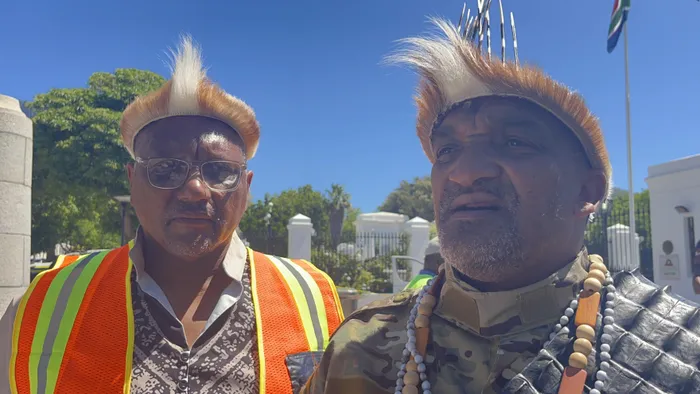
United Sovereign Cape Kingdom (USCK) prime minister John Johnson and King Cornelius Botha.
Image: Fouzia van der Fort
King Cornelius Botha, from USCK, said that they practised customary law.
He argued that Roman-Dutch law, imposed through colonisation and perpetuated by apartheid, is foreign to indigenous South Africans.
He questioned the legality of this imposition and called for an end to illegal evictions, comparing them to forced removals.
King Botha asserted that land sales without proper transfer of ownership were crimes against humanity, akin to selling a stolen car.